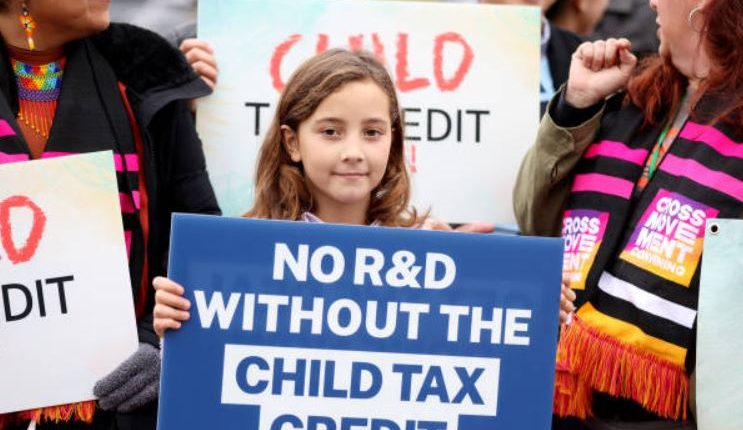Bipartisan Push for Tax Reforms: Strengthening Child Tax Credit and Business Incentives
The chairmen of the top tax policy committees in Congress, Sen. Ron Wyden and Rep. Jason Smith, announced a bipartisan agreement on Tuesday.
The agreement aims to enhance the child tax credit and revive various tax breaks for businesses, with the goal of garnering support from lawmakers across party lines.
Fast-Tracking COVID-19 Employee Retention Incentive Sunset
The proposed tax cuts, totaling approximately $78 billion, would be financed by expediting the end of a tax break approved during the COVID-19 pandemic. This incentive encouraged businesses to retain employees on their payroll during the challenging times.
Sen. Ron Wyden, the Democratic chairman of the Senate Finance Committee, and Rep. Jason Smith, the Republican chairman of the House Ways and Means Committee, have been engaged in months-long negotiations on a comprehensive tax package.
The package addresses a range of priorities before lawmakers shift their focus to the upcoming election season.
Wyden expressed the urgency to gain approval for the measure in time for businesses and families to benefit during the upcoming filing season. The Internal Revenue Service (IRS) is set to begin accepting and processing tax returns on January 29, prompting lawmakers to move swiftly on the proposed bill.
However, achieving this goal poses challenges, as lawmakers are currently focused on finalizing spending bills and considering legislation related to aiding Israel, Ukraine, and addressing immigration concerns at the US-Mexico border.
One option under consideration is attaching the tax reform measure to one of these high-priority bills.
The agreement primarily emphasizes two key aspects. For Democrats, the focus is on boosting the child tax credit, while Republicans concentrate on tax breaks for businesses to stimulate economic growth.
Regarding the child tax credit, the bill proposes incremental increases in the maximum refundable child tax credit. The goal is to raise it to $1,800 for 2023 tax returns, $1,900 for the following year, and $2,000 for 2025 tax returns.
The Center on Budget and Policy Priorities projects that around 16 million children in low-income families would benefit from this expansion.
Republicans highlight provisions for businesses, including immediate deductions for research and development costs, full deductions for the purchase of equipment, machinery, and technology, and increased flexibility in determining deductible borrowing amounts.
Tax Breaks Align

These tax breaks are set to expire at the end of 2025, aligning with the expiration date of other tax cuts approved in 2017.
Senate Majority Leader Chuck Schumer voiced his support for the tax package, emphasizing bipartisan elements that both sides can celebrate. He specifically praised the inclusion of an increased tax credit for the construction and rehabilitation of housing for low-income households.
Speaker Mike Johnson was expected to meet with Rep. Jason Smith to discuss the tax agreement, indicating ongoing discussions within the Republican caucus.
To address concerns about projected deficits, the authors of the agreement propose financing the tax cuts by accelerating the end of the employee retention tax credit, which was designed to help businesses retain employees during the COVID-19 pandemic.
The bill aims to bar additional claims after January 31 of this year, with increased penalties for tax preparers failing to undertake due diligence in submitting COVID-19-related claims.
This bipartisan agreement reflects a concerted effort to address key economic priorities and provide support to families and businesses, with potential implications for the broader fiscal landscape.
As lawmakers navigate a complex legislative agenda, the fate of this tax reform proposal remains uncertain but underscores the ongoing bipartisan collaboration on critical policy issues.

